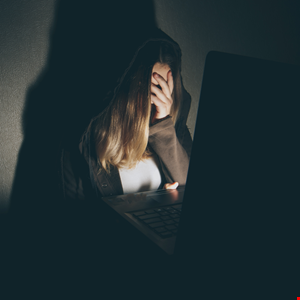- 바이오에 쏠리고 양자는 비었다… 레달, 딥테크 스타트업 투자 편중 지적
- “방심하면 당한다” 최악의 AI 대실패 사례 12선
- Qualcomm’s $2.4B Alphawave deal signals bold data center ambitions
- Is this the end of Intel-based Macs? Apple confirms bittersweet update policy for MacOS
- Your Apple MacBook is getting a free upgrade - here are the best MacOS 26 features
Fifth of Young Women in UK Were Cyber-Flashed in Past Year

More than a fifth of young female social media users living in the UK have received unsolicited sexually explicit digital content in the past twelve months, according to a new study.
The research, commissioned by the charity Girlguiding, was conducted to examine the extent of online sexual abuse directed at young women and girls in the UK.
Researchers polled 1,002 users aged between 13 and 21. Only 15% of those surveyed believed social media was a safe space for them.
Findings revealed that one in three users had experienced cyber-harassment of a sexualized nature. Pressure had been placed on 16% of users to share indecent images of themselves.
The study found that nearly all girls aged 13 to 15 had experienced negative emotions such as anxiety, anger, fear and depression after being asked to expose their naked bodies.
The highest volume of requests to share nudes was received by girls with disabilities. This group was also subjected to the highest number of sexist comments and the most bullying.
Girlguiding’s chief executive, Angela Salt, said the study’s results showed that online harassment of young women and girls in the UK had a “devastating impact.”
The online abuse can start at a young age. Eleven-year-old user Eva said she was just nine years old when students at her school bullied her over Facebook Messenger, accusing her of performing sexual acts with boys.
“I didn’t understand,” said Eva, “I was really confused by what they were saying.”
Salt called for the UK government to recognize the effect cyber-harassment is having on the kingdom’s young female population.
“Girls and young women should be able to use the internet freely, safely and without fear,” said Salt.
She added: “Sadly, our research highlights that there is still a long way to go before this is reality, which is why we are calling on the government to ensure violence against girls and women online and its devastating impact is recognized and included within the Online Safety Bill.”
The UK government unveiled plans on Monday to strengthen the Bill by criminalizing additional acts and forcing pornography websites to use age verification technologies.

